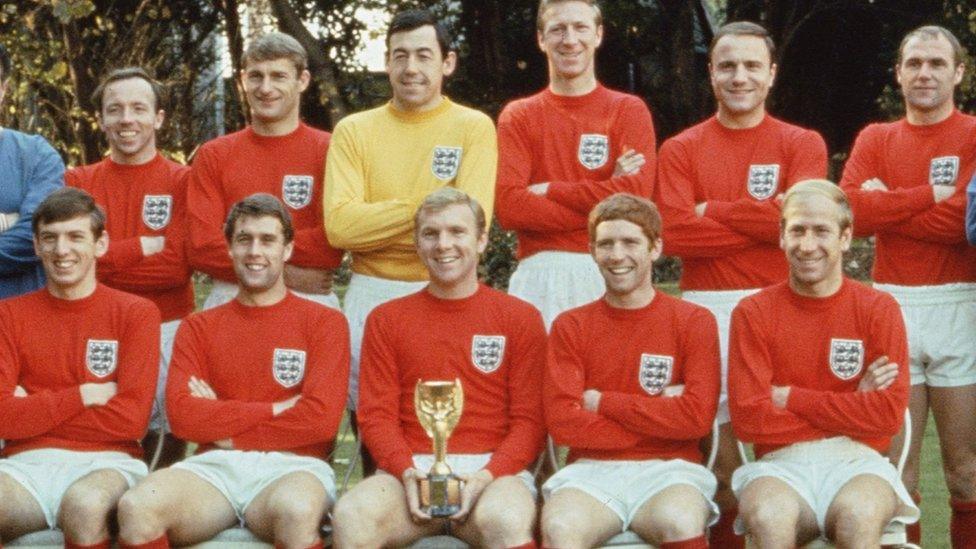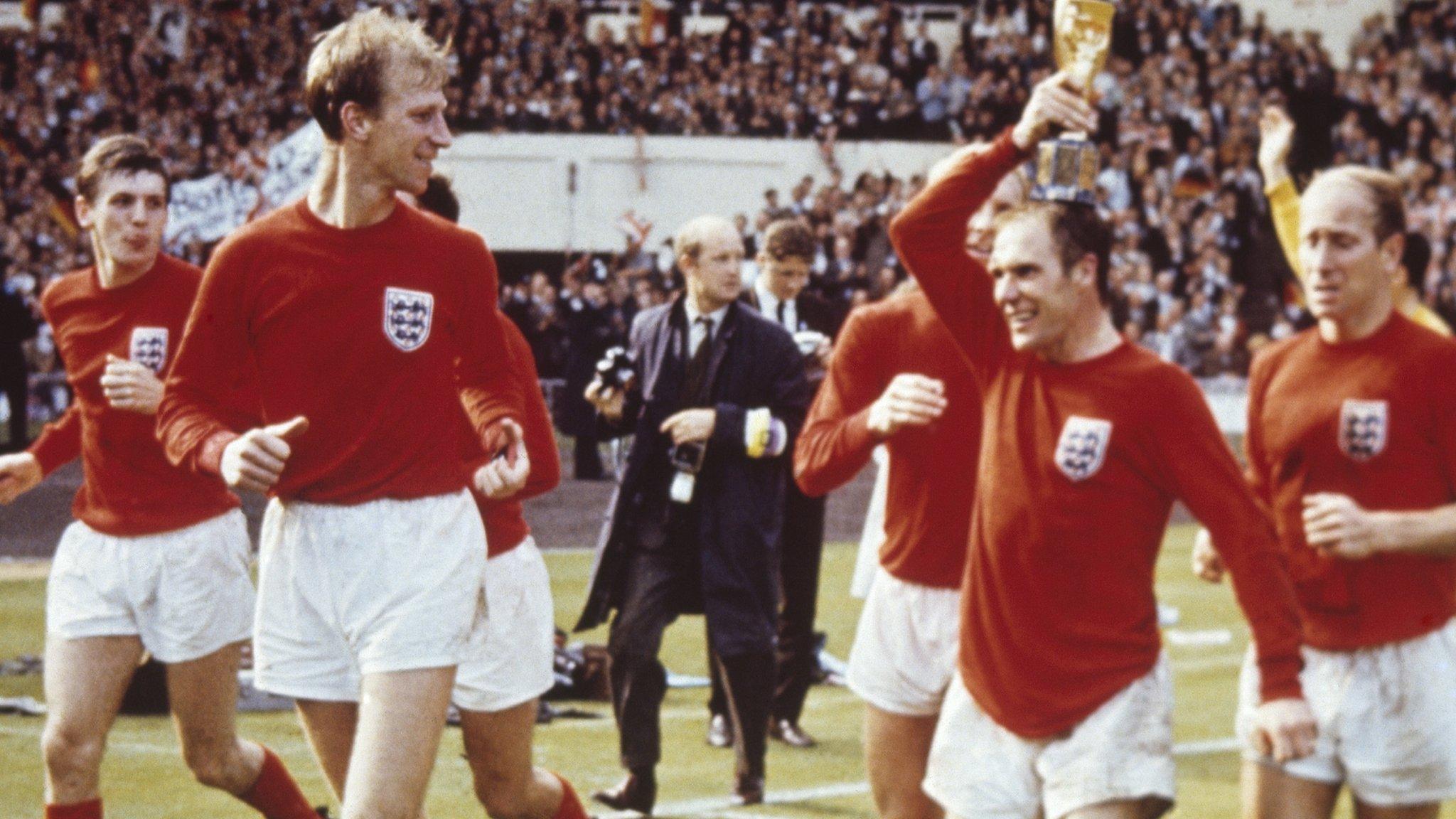Football Association to lead study into brain disease in footballers
- Published

Jeff Astle played for England, West Bromwich Albion and Notts County
The Football Association will lead a study into possible links between football and brain diseases.
The family of former England, West Brom and Notts County striker Jeff Astle has campaigned for research since he died from brain trauma in 2002.
A coroner described his illness as an "industrial disease", in reference to him heading leather balls.
The FA said it was working with the Professional Footballers' Association to secure funding for the research.
It said it had been in talks with organisations, including Fifa, since 2014 but wanted to press on with the research and it had "now been agreed that solely UK-based research could give us an opportunity to work with other sports".


Jeff Astle's family has been pushing for research about the link between heading footballs and brain trauma
Ex-England, West Brom and Notts County striker Jeff Astle died aged 59 in 2002
He had been diagnosed with early onset Alzheimer's, but a doctor who examined his preserved brain in 2014 said he had chronic traumatic encephalopathy (CTE) - a condition normally linked to boxers
An inquest in 2002 found that repeatedly heading heavy leather footballs had caused trauma to his brain, and the coroner recorded a verdict of death by industrial disease
His family started the Justice for Jeff campaign in 2014 and The Jeff Astle Foundation, external in April 2015 to raise awareness of brain injury in sport
Dawn Astle said her father would not have wanted heading to be banned, but wants players to make an informed choice

The possible dangers of heading footballs, especially older heavier designs, was brought to light following the death of Mr Astle aged 59 in 2002.
Earlier this year it was also revealed three members of England's 1966 World Cup squad had been diagnosed with Alzheimer's.
Mr Astle's daughter, Dawn, who set up the Justice for Jeff campaign group in 2014, said families of other players and football supporters had been in touch about other potential cases and she was unhappy about the delay in starting the research.
"This could be the most important research the game has ever done so it's ridiculous that they can't just get on with it," she said.
"It's a shocking failure and disrespectful to the families of players who are living with dementia, stripped of their dignity."
Dr Michael Grey, from the University of Birmingham, said football authorities "should be leading the way" in commissioning more independent research.
"This important issue has a dearth of good science and a great deal of unfounded opinion," he said.
- Published12 April 2016

- Attribution
- Published9 April 2016

- Published11 April 2015

- Published1 June 2014

- Published3 April 2014

- Published18 March 2014
